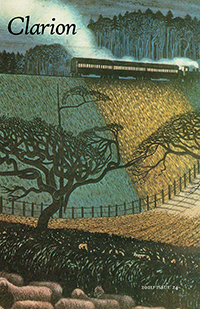| Certayne notes of Instruction concerning the making of verfe or ryme in English, written at the request by George Gascoigne (1575). This informal treatise, published as prefix to the author's Posies, is the first English manual of versification. The following text is taken from the scan of an 1869 volume prepared by the Internet Archive. The spelling of that edition has been preserved, but the typography has been modernized so that s is used for ſ and u for v. Signor Edouardo, since promise is debt, and you (by the lawe of friendship) do burden me with a promise that I shoulde lende you instructions towards the making of English verse or ryme, I will assaye to discharge the same, though not so perfectly as I would, yet as readily as I may : and therwithall I pray you consider that Quot homines, tot Sententice, especially in Poetrie, wherein (neverthelesse) I dare not challenge any degree, and yet will I at your request adventure to set downe my simple skill in such simple manner as I have used, referring the fame hereafter to the correction of the Laureate. And you shall have it in these few poynts followyng. The first and most necessarie poynt that ever I founde meete to be considered in making of a delectable poeme is this, to grounde it upon some fine invention. For it is not inough to roll in pleasant woordes, nor yet to thunder in Rym, Ram, Ruff, by letter (quoth my master Chaucer) nor yet to abounde in apt vocables, or epythetes, unlesse the Invention have in it also aliquid salis. By this aliquid salis, I meane some good and fine devise, (hewing the quicke capacitie of a writer: and where I say some good and fine invention, I meane that I would have it both fine and good. For many inventions are so superfine, that they are Vix good. And againe many Inventions are good, and yet not finely handled. And for a general forwarning: what Theame soever you do take in hande, if you do handle it but tanquam in oratione perpetua, and never studie for some depth of devise in ye Invention, and some figures also in the handlyng thereof: it will appeare to the skilfull Reader but a tale of a tubbe. To delivef unto you generall examples it were almoste unpossible, sithence the occasions of Inventions are (as it were) infinite : neverthelesse take in worth mine opinion, and perceyve my furder meanyng in these few poynts. If I should undertake to wryte in prayse of a gentlewoman, I would neither praise hir christal eye, nor hir cherrie lippe, etc. For these things are trita et obvia. But I would either finde some supernaturall cause wherby my penne might walke in the superlative degree, or els I would undertake to aunswere for any imperfection that shee hath, and thereupon rayse the prayse of hir commendation. Likewise if I should disclose my pretence in love, I would eyther make a strange discourse of some intolerable passion, or finde occasion to pleade by the example of some historie, or discover my disquiet in shadowes per Allegoriam, or use the covertest meane that I could to anoyde the uncomely customes of common writers. Thus much I adventure to deliver unto you (my freend) upon the rule of Invention, which of all other rules is most to be marked, and hardest to be prescribed in certayne and infallible rules, neverthelesse to conclude therein, I would have you stand most upon the excellencie of your Invention, and sticke not to studie deepely for some fine devise. For that beyng founde, pleasant woordes will follow well inough and fast inough. NOTES 2. “A pinch of salt,” salt being in those days before refrigeration both a preservative (making it last) and a flavoring (to make it tasty). <<back 3. “Vix” is Latin for “"scarcely.” <<back 4. “just as if in continual oration” (with thanks to Amiel Bowers for a translation). GG may well be quoting from Cicero. <<back |
ISSN
2150-6795 |

